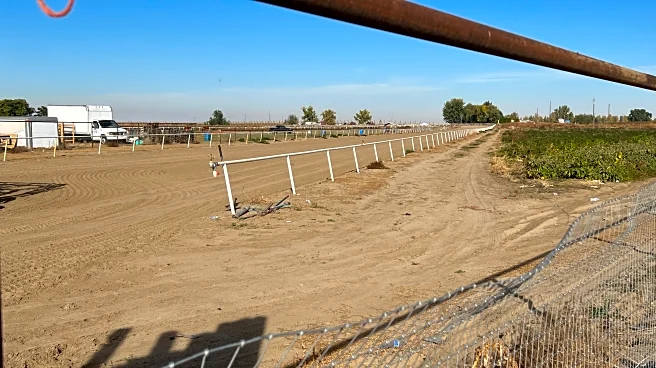Rapid Read • 8 min read
Norway's Rare Earths Norway (REN) has discovered a significant rare earth deposit in Ulefoss, a former mining town in southern Norway. The deposit, estimated at 9 million tons, positions Ulefoss alongside major global mines in China and the United States. Rare earths are crucial for digitalization and the energy transition, being integral to technologies like solar panels and electric vehicles. The European Union, facing strategic dependence on China for these materials, has enacted the EU Critical Raw Materials Act to secure internal sources. Norway, although not an EU member, is a close ally and has its own mineral strategy aimed at sustainable mining. The REN project, however, faces challenges, including potential subsidence risks and high energy consumption, with plans to begin pilot operations next year.
AD
The discovery in Norway could reduce Europe's reliance on China, which currently dominates rare earth extraction and processing. This shift is significant for European industries reliant on these materials, potentially stabilizing supply chains and reducing geopolitical vulnerabilities. However, the project's viability is questioned due to technical challenges and high costs, which may keep Chinese rare earths cheaper. The geopolitical implications are profound, as Europe seeks to diversify its sources and reduce dependence on foreign powers. The success of this project could influence global rare earth markets and impact industries such as technology and defense.
REN plans to start pilot operations next year, aiming for full capacity by 2030. However, experts caution that the average time to extract rare earths is around 16 years, due to extensive prospecting, investments, and permitting processes. The project's success is uncertain, with only a fraction of such initiatives typically succeeding. The European Union and Norway will likely continue to explore alternative strategies, such as recycling and rationalizing demand, to mitigate dependence on foreign sources.
The environmental and social impacts of the mining project are significant, with concerns about subsidence and disruption to local ecosystems. The project also highlights ethical considerations in the rare earth industry, including the potential use of these materials in controversial sectors like arms manufacturing. The push for sustainable mining practices in Norway reflects broader global efforts to balance economic growth with environmental stewardship.
AD
More Stories You Might Enjoy












